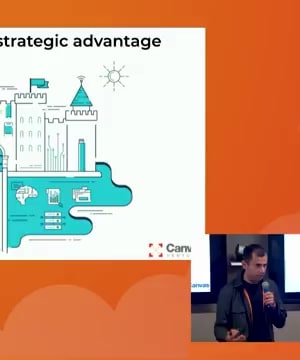What is the role of moats in business?
Sources:
In business strategy, a "moat" refers to a sustainable competitive advantage that protects a company from its competitors, similar to how a water-filled moat protects a castle. This concept was popularized by Warren Buffett, who emphasized the importance of investing in businesses that are well-protected against competitive threats.
Key Functions of a Moat in Business:
-
Sustainability and Barrier:
- A moat provides a durable competitive advantage that guarantees long-term profitability and market position. It involves having unique features that cannot be easily replicated by competitors, fostering a figurative barrier that protects the company 1.
-
Strategic Advantage:
- It serves as a key strategic advantage, making it difficult for competitors to erode market share. This strategic advantage can prevent competitors from replicating the business's success effectively 2.
-
Resource and Investment Allocation:
- The presence of a moat allows companies to reinvest capital at higher rates of return, maintaining or increasing its competitive advantage over time. This involves careful planning regarding where and how resources are allocated 3.
Building and Maintaining a Moat:
-
Technology and Innovation: Some companies build moats through technological advancements which, while difficult, provides a significant competitive edge if achieved.
-
Customer Intimacy: By deeply understanding and integrating with customer needs, companies can create high switching costs, making it difficult for customers to move to another provider without incurring significant costs or inconveniences.
-
Brand Strength: Powerful branding can act as a moat by embedding a company so deeply into consumer lifestyles and choices that moving away would require a significant shift in perception or behavior.
Overall, the effectiveness of a moat depends on how well it is integrated into the company's overarching strategy and its ability to adapt to changing market conditions. While moats offer protection and competitive advantage, they require continuous innovation and adjustment to remain effective over time 4.
RELATED QUESTIONS-
